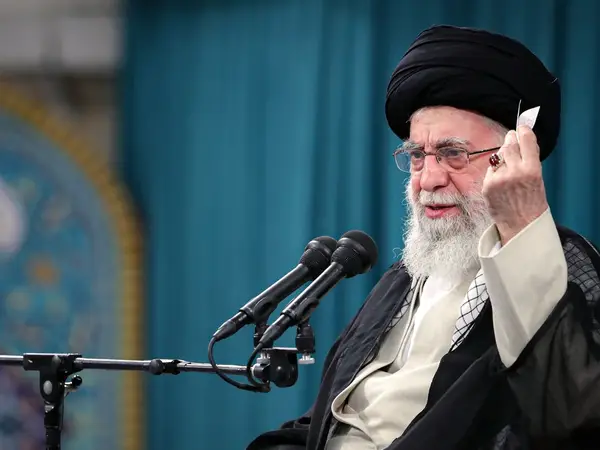While Iran has been witnessing nationwide protests for over two months, Supreme Leader Ali Khamenei says the organizers of “riots” failed to mobilize the people.
The authoritarian ruler claimed Saturday that the “riots” will come to an end, saying that the protesters “are too inferior to be able to harm the establishment.”
In a speech during a meeting with a group of people from the central city of Esfahan, Khamenei said “now that the organizers failed to bring the people to the scene, they want to tire the officials, but they are wrong because these mischiefs make the people hate them more.”
Khamenei’s strange denial of reality of the nationwide uprising and his unfounded accusations are manifestations of his usual tactic of blaming others and refusing to take responsibility. While he endorsed the 2015 nuclear accord with world powers, he immediately condemned it as soon as former US president Donald Trump withdrew from the deal.
While over 400 people have been killed by regime’s security forces since the start of the uprising, Khamenei failed to utter a single word about the victims, but said “rioters” have killed government forces, which he claimed will anger the nation.
Trying to link the popular protests to attempts to undermine the religious beliefs of the people he stated, “Enmity with all the wishes and sanctities of the Iranian nation means enmity with Islam.”
“Burning the holy Quran, setting fire to mosques, torching the national flag and disrespecting the national anthem revealed the real identity of the perpetrators,” he added.
Officials have been making similar unfounded claims about protesters burning mosques or the Quran, although many do reject the Islamic Republic’s flag and anthem.
Khamenei’s remark about the national anthem referred to athletes refusing to sing the Islamic Republic’s anthem during matches following the death of Mahsa Amini, the young woman whose killing in police custody triggered the unrest.
Many athletes have expressed solidarity with the people either in bold public statements or through different forms of disobedience.
Authorities have made serious threats against athletes and other celebrities to stop them from public displays of solidarity with protesters, but many have defied the warnings.
Stressing that those “deceived” must be differentiated from those “perpetrating” the protests, Iran’s ruler went on to say that “the perpetrators of crimes, murders, and those who threatened to set fire to shops and cars should be punished accordingly.”
“Of course, the punishment should be meted out by a strong, healthy and motivated judiciary, and no one has the right to punish arbitrarily and at will,” he added. However, the Judiciary Khamenei referred to is only accountable to him and disregards due process of law during trials of dissidents.
Khamenei’s call for punishing demonstrators comes as thousands have been arrested in the last two months, with some being at risk of receiving the death sentence for security-related charges, such as “enmity against God and corruption on earth” in sham trials at Revolutionary Courts.
While Iran has been in economic crisis for more than a decade, Khamenei again blamed the protests on “enemies” who cannot see the Islamic Republic’s “progress.”
However, in part of his comments, he also blamed the current situation on officials who did not pay attention to his advice for resolving economic vows.
Khamenei’s advice has been isolation and self-reliance instead of resolving foreign policy issues and improving ties with the West.
“From an economic point of view, the past decade was not a good one and if they [officials] had followed those recommendations and taken the necessary measures, the situation of the country and people would have been different,” he claimed.
This remark was also a misleading statement, as Khamenei alone is responsible for pushing on with Iran’s nuclear program that has brought on sanctions, harming the economy for more than a decade.
